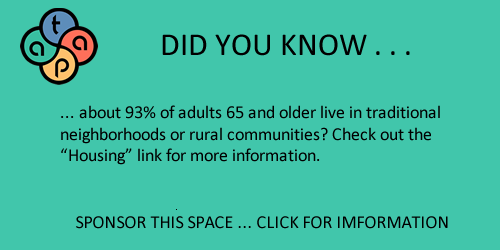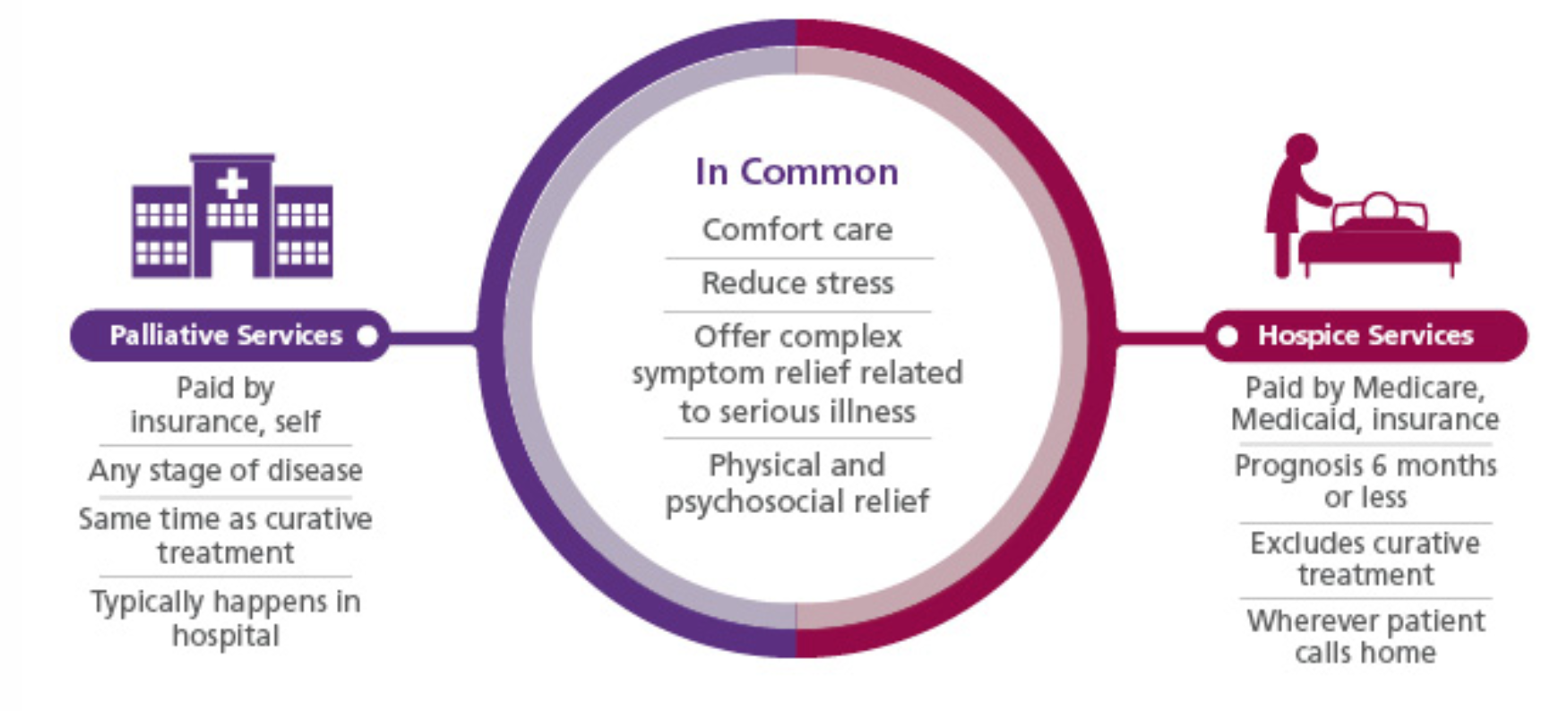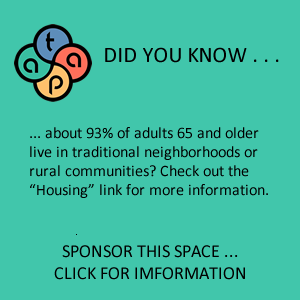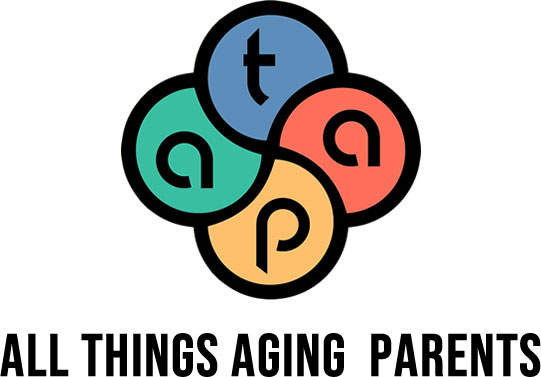In general, human nature causes people to shy away from thinking too much about the end of life. Some people have a strong hope that death is not the end of their existence, which can minimize the fear of the unknown. Others have a preoccupation with death and what comes next, which may be uncomfortable for those around them. As caregivers, it is necessary for us to look realistically at the end of our parent’s life and all of the considerations that surround that. We want them to be as comfortable and fear-free as possible, and help them to finish well.
Fortunately, there are programs in place which can help our parents and us through this challenging time. Palliative care and hospice care both offer compassionate care to those with a life-limiting illness, and both provide care to minimize symptoms. Hospice care focuses strictly on those who have been diagnosed as having a terminal illness, with reasonable certainty that they have 6 months or less left to live. Treatments and medications are used to manage symptoms and minimize suffering. Palliative care focuses on providing symptom relief for those undergoing treatment to cure the disease, while hospice care focuses on terminally ill patients.



Source: VITAS Healthcare
Finally, in preparation for your parent's death, it is good for you to know their desires for a funeral ceremony. Once the end has come there are many choices to be made, if they haven’t been made beforehand. We will provide some helpful ideas and comparison tools.



















